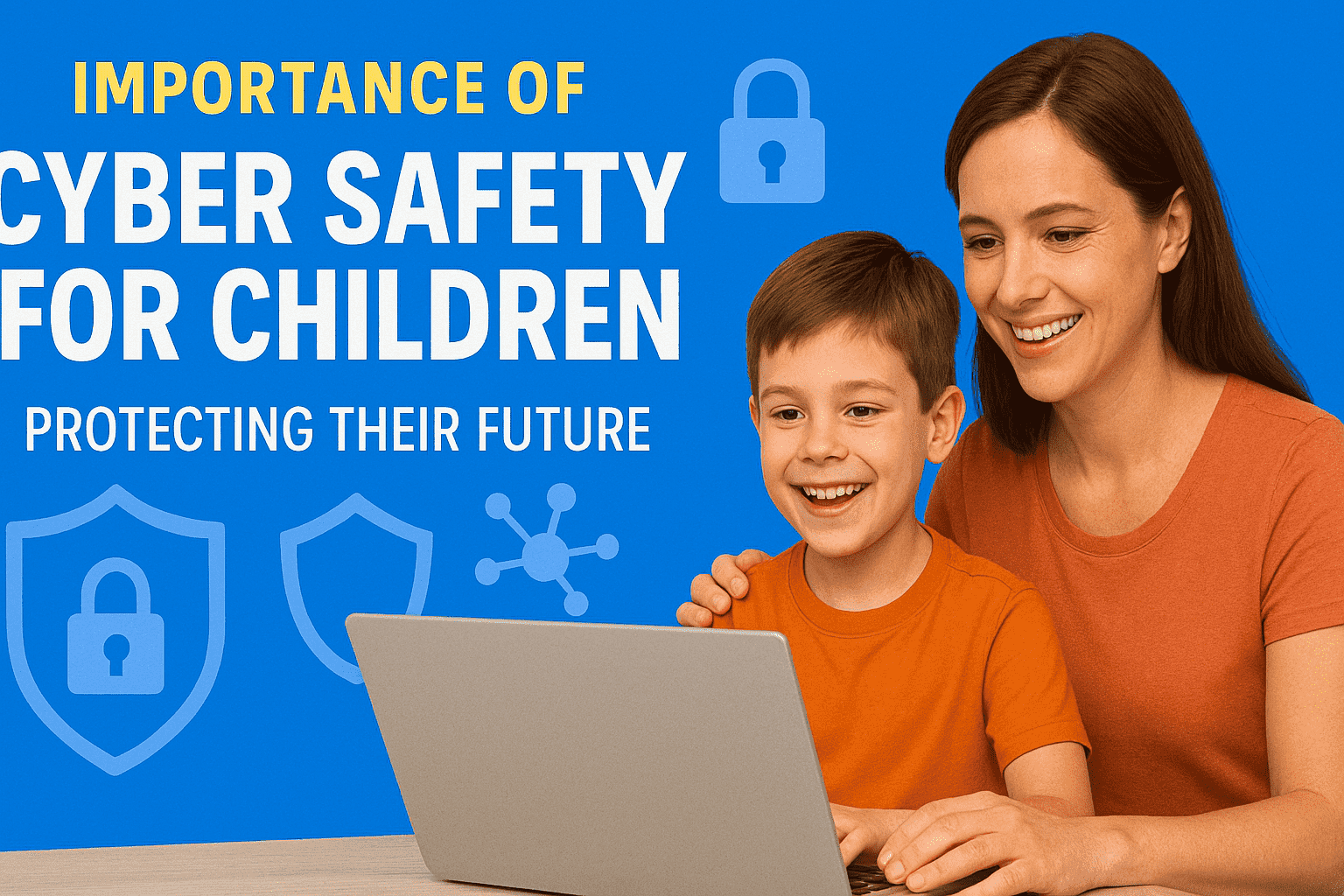The Importance of Cyber Safety for Children in a Connected World
Did you know that over 60% of children between the ages of 8 and 12 interact with strangers online — often without even realizing it?The internet is an amazing tool for learning, creativity, and connection, but it also opens the door to serious risks. Digital technology has transformed the online world for young people, increasing both opportunities and dangers. As a parent, you’re not just protecting your child in the physical world anymore — you’re now the first line of defense in their digital one.
At BrickHouse Security, we’ve spent nearly two decades protecting families, businesses, and communities. This blog post is designed to help parents and other users understand the risks and harm present on digital platforms. And we know from experience that cyber safety for children starts at home — with awareness, smart tools, and open conversations.
It is crucial to protect all users, especially young people, from harm and risk in the online world.
Why Cyber Safety Matters More Than Ever
Children today grow up immersed in technology — apps, games, video platforms, and social media are all part of their daily routines. But unlike playgrounds or classrooms, the internet doesn’t come with built-in boundaries. Kids can stumble across inappropriate content, get targeted by online predators, or become victims of cyberbullying — often without their parents knowing. Social media platforms and instant messaging increase the risk of harmful contact, especially for teenagers, as offenders can more easily reach out and exploit vulnerabilities.
Common online threats include:
- Identity theft and phishing scams
- Phishing attempts and scams targeting personal data
- Cyberbullying and harassment
- Exposure to explicit content
- Online predators and catfishing
- Malware and spyware from unsafe downloads
Other forms of online harm, such as hate speech and disinformation, also threaten children's safety, privacy, and mental health. Responsive services are crucial to support victims and help them recover from these experiences.
Ongoing efforts are essential to protect children and teenagers from these risks and ensure their online safety.
Smart Parenting in a Digital Age: Internet Safety Tips for Children
Before your child logs on, sit down and set clear ground rules. Teaching key lessons in digital safety is essential, and using resources like Internet Awesome can help educate children and students about responsible online behavior. Parents and schools should set a specific date for digital safety education to ensure consistent teaching and knowledge sharing. Here are five essential safety guidelines every parent should discuss with their kids:
1. Protect Personal Information
Explain that full names, home addresses, school names, phone numbers, and credit card details should never be shared online without your permission.
2. Keep Passwords Private
Passwords are personal — not even friends should have access. Teach your kids how to create strong, unique passwords and why they should always log out of public or shared computers.
3. Think Before Posting
Kids often don’t realize that what they post can last forever. Talk to them about the importance of protecting their digital reputation and only sharing things they’d be comfortable having seen by teachers, family members, or future employers.
4. Avoid Meeting Online Strangers
Make it clear that they should never meet someone they’ve only interacted with online. Even if a person seems trustworthy, they may not be who they say they are.
5. Speak Up About Cyberbullying
Give your child the confidence to report harmful or inappropriate behavior, and encourage them to speak to a trusted adult if they experience or witness cyberbullying. Let them know they won’t get in trouble for coming to you — they’ll get help. Encourage empathy, and teach them never to forward or engage with hurtful content. Emphasize the importance of open communication and ongoing communication between children and trusted adults to ensure they feel supported and safe discussing any online concerns.
Add an Extra Layer of Protection: Use Cybersecurity Tools
Education is key — but technology can help, too. Creating a safe online environment for the whole family involves using both education and the right cybersecurity tools.
There are many tools and services available to help protect your home network, such as parental controls, firewalls, and antivirus software. These cybersecurity tools are essential for keeping children safe online and ensuring your family's digital safety.
Here’s how cybersecurity tools protect your home network:
- Real-time threat monitoring: Devices scan for viruses, malware, and phishing attacks before they cause damage.
- Parental controls: Limit screen time, block inappropriate content, and monitor app usage on multiple devices.
- Cloud-based or mobile management: Stay informed with easy-to-use dashboards from your smartphone.
- Multi-device protection: Guard every device in the house, from tablets to gaming consoles, all in one system.
If you’re already using a GPS tracker or smart security device in your home, you understand the value of proactive protection. A cybersecurity tool is a digital equivalent — defending your family from invisible threats.
Final Thoughts: Don’t Scare Your Kids — Empower Them
The internet isn’t going anywhere, and that’s okay. It’s a vital part of how kids learn and grow. The goal isn’t to keep them offline — it’s to keep them informed and protected while they explore. It’s important to help children understand online safety and become aware of potential risks they may encounter.
Talk to your children early and often about cyber safety. Encourage them to communicate openly with you about their online experiences. Make it an open, ongoing conversation. And don’t forget to back those conversations with smart tools that give you visibility and peace of mind.
Posted by Todd Morris on Jan 17th 2025


